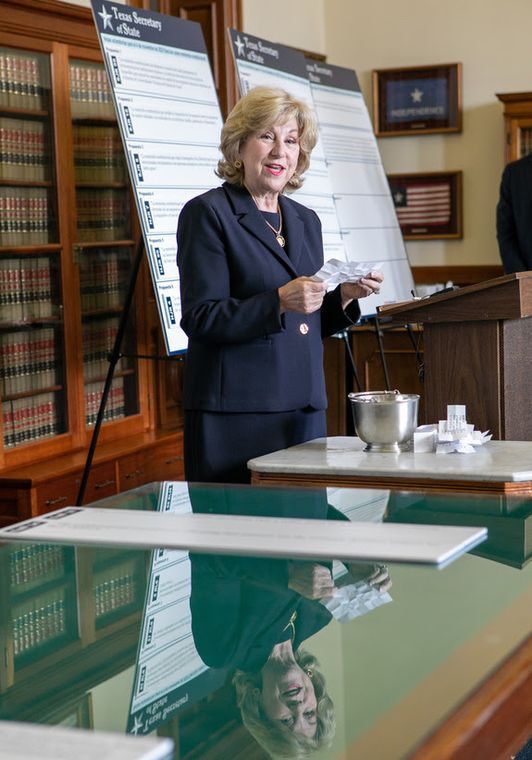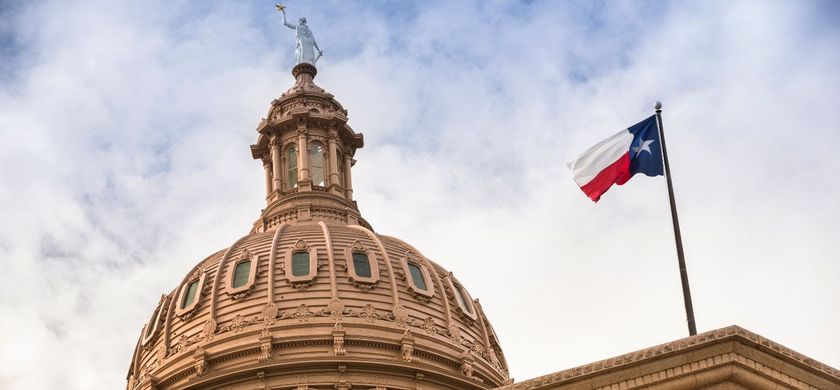- Sections :
- Crime & Public Safety
- Restaurants & Food
- Sports
- More
Categories
Magnolia man gets life for exploiting young female he met and communicated with via Roblox and Facebook

MAGNOLIA, TX -- A 47-year-old Magnolia resident has been sentenced to the maximum sentences allowed by federal law following his conviction of coercion and enticement as well as production and possession of child pornography, announced U.S. Attorney Ryan K. Patrick.
George Daniel McGavitt pleaded guilty March 11.
Today, District Judge Gray Miller sentenced him to serve life for the coercion and enticement. He also received 360 and 120 months for the production and possession charges, respectively. He will also be ordered to register as a sex offender. Restitution will be determined at a later date.
“All over the country we are seeing an increase of online child exploitation and targeting,” said Patrick. “Our kids have been on their devices a lot since March - both for school and for fun - and predators are out there. Parents must have access to their kid’s devices, know their online communities and talk with them about internet boundaries.”
At the hearing today, Judge Miller considered the statements of the victim and her father. They described how McGavitt’s actions scarred their family for life, changed how they viewed the world and stole their sense of security. The victim explained how she was attending school online and using Roblox to play games. McGavitt, portraying himself as 16 years of age, approached her through that application and had her switch over to Facebook. “Within three months, the free, bubbly, carefree girl that I knew myself to be became isolated, depressed, and suicidal,” she said.
She said McGavitt had stolen so much from her - the experience of her first kiss, her virginity and her feeling of safety anywhere.
The investigation into McGavitt began May 26, 2019. The barely-teenage victim had advised her parents she had been involved in an online relationship with an adult male known as “Daniel McGavitt,” who she believed resided in Texas. The pair had been communicating via Facebook. On several occasions, McGavitt had requested she send him nude photographs or videos of herself engaging in sex acts. The victim also detailed an occasion in April 2019 when McGavitt traveled to Arkansas and engaged in sexual intercourse with her multiple times.
Authorities investigated three different Facebook accounts, including those of the victim and the profiles McGavitt utilized. That investigation revealed voluminous communications between them. Law enforcement observed at least three images depicting the victim engaging in sexually explicit conduct. These were just a few of the 71 images and 13 videos McGavitt caused the victim to create and send to him during his nine-month manipulation of her.
A search warrant of his phone also revealed several chat conversations between the victim and McGavitt during which he controlled her and caused her to produce child pornography images. Further, he acknowledged her young age, discussing her birthday, getting married and impregnating her.
Authorities were also able to place McGavitt less than a mile from the victim’s residence.
McGavitt has been and will remain in custody pending transfer to a U.S. Bureau of Prisons facility to be determined in the near future.
The FBI in Houston conducted the investigation with the assistance of Washington County, Arkansas, Sheriff’s Office and FBI - Little Rock.
Assistant U.S. Attorney Sherri L. Zack prosecuted the case, which was brought as part of Project Safe Childhood(PSC), a nationwide initiative the Department of Justice (DOJ) launched in May 2006 to combat the growing epidemic of child sexual exploitation and abuse. U.S. Attorneys' Offices and the Criminal Division's Child Exploitation and Obscenity Section leads PSC, which marshals federal, state and local resources to locate, apprehend and prosecute individuals who sexually exploit children and identifies and rescues victims. For more information about PSC, please visit DOJ’s PSC page. For more information about internet safety education, please visit the resources tab on that page.
George Daniel McGavitt pleaded guilty March 11.
Today, District Judge Gray Miller sentenced him to serve life for the coercion and enticement. He also received 360 and 120 months for the production and possession charges, respectively. He will also be ordered to register as a sex offender. Restitution will be determined at a later date.
“All over the country we are seeing an increase of online child exploitation and targeting,” said Patrick. “Our kids have been on their devices a lot since March - both for school and for fun - and predators are out there. Parents must have access to their kid’s devices, know their online communities and talk with them about internet boundaries.”
At the hearing today, Judge Miller considered the statements of the victim and her father. They described how McGavitt’s actions scarred their family for life, changed how they viewed the world and stole their sense of security. The victim explained how she was attending school online and using Roblox to play games. McGavitt, portraying himself as 16 years of age, approached her through that application and had her switch over to Facebook. “Within three months, the free, bubbly, carefree girl that I knew myself to be became isolated, depressed, and suicidal,” she said.
She said McGavitt had stolen so much from her - the experience of her first kiss, her virginity and her feeling of safety anywhere.
The investigation into McGavitt began May 26, 2019. The barely-teenage victim had advised her parents she had been involved in an online relationship with an adult male known as “Daniel McGavitt,” who she believed resided in Texas. The pair had been communicating via Facebook. On several occasions, McGavitt had requested she send him nude photographs or videos of herself engaging in sex acts. The victim also detailed an occasion in April 2019 when McGavitt traveled to Arkansas and engaged in sexual intercourse with her multiple times.
Authorities investigated three different Facebook accounts, including those of the victim and the profiles McGavitt utilized. That investigation revealed voluminous communications between them. Law enforcement observed at least three images depicting the victim engaging in sexually explicit conduct. These were just a few of the 71 images and 13 videos McGavitt caused the victim to create and send to him during his nine-month manipulation of her.
A search warrant of his phone also revealed several chat conversations between the victim and McGavitt during which he controlled her and caused her to produce child pornography images. Further, he acknowledged her young age, discussing her birthday, getting married and impregnating her.
Authorities were also able to place McGavitt less than a mile from the victim’s residence.
McGavitt has been and will remain in custody pending transfer to a U.S. Bureau of Prisons facility to be determined in the near future.
The FBI in Houston conducted the investigation with the assistance of Washington County, Arkansas, Sheriff’s Office and FBI - Little Rock.
Assistant U.S. Attorney Sherri L. Zack prosecuted the case, which was brought as part of Project Safe Childhood(PSC), a nationwide initiative the Department of Justice (DOJ) launched in May 2006 to combat the growing epidemic of child sexual exploitation and abuse. U.S. Attorneys' Offices and the Criminal Division's Child Exploitation and Obscenity Section leads PSC, which marshals federal, state and local resources to locate, apprehend and prosecute individuals who sexually exploit children and identifies and rescues victims. For more information about PSC, please visit DOJ’s PSC page. For more information about internet safety education, please visit the resources tab on that page.
Comments •
















